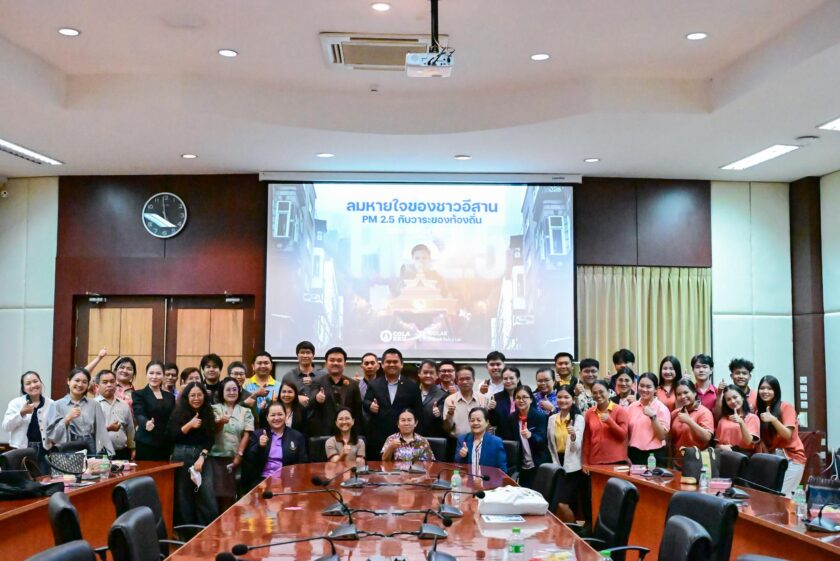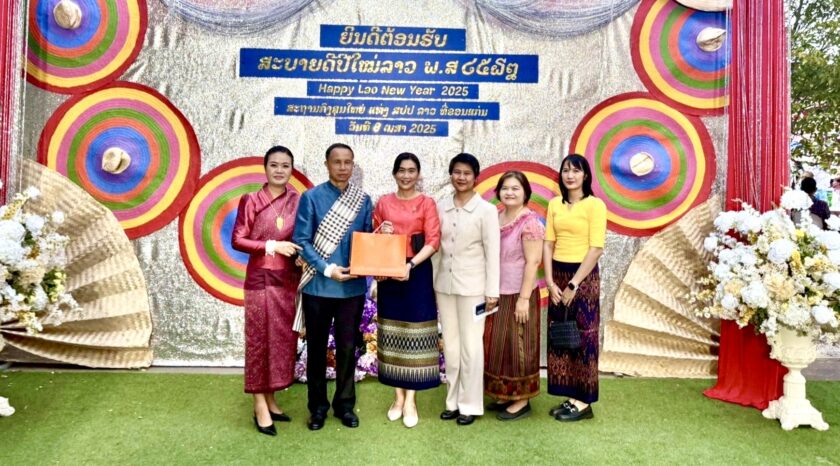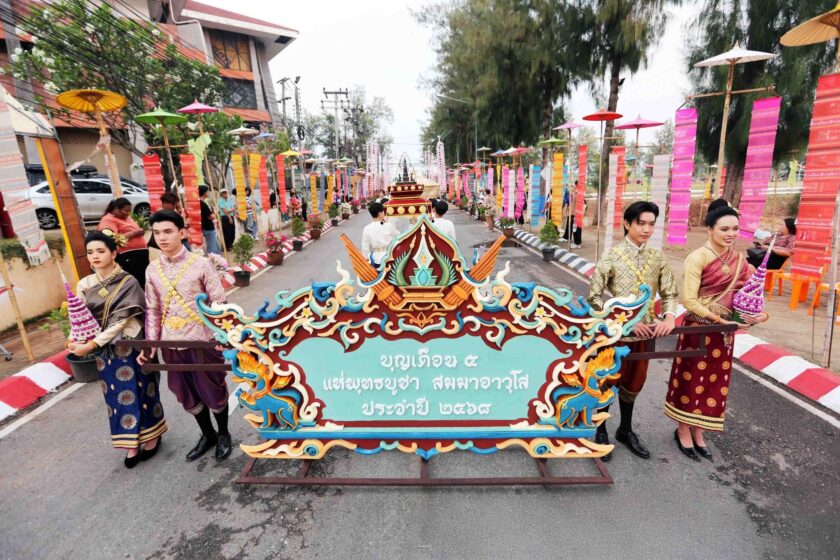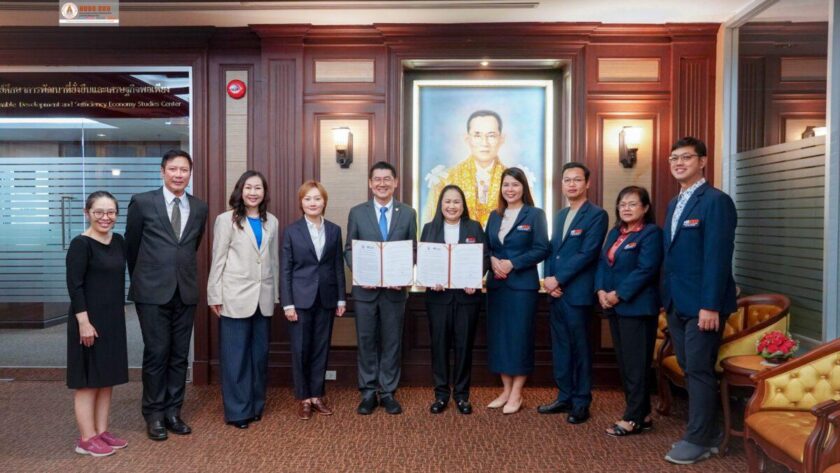“Education Transformation” of Khon Kaen University is being carried out by setting the administration directions of the University for readiness of the educational system, with freedom and accessibility of people to the resources of knowledge from all directions, and the readiness to meet the technological and digital rapid changes so that new bodies of knowledge can be acquired and transferred to the society as needed.

From the Administrative Strategy Plans of Khon Kaen University 2020-2023, in terms of education, there has been the setting of the University’s administrative directions for the readiness in freedom of educational system, accessibility to the knowledge resources from all directions, and the readiness to meet the rapid changes of technologies and digital. Education Transformation is being carried out by transforming former programs to a new paradigm in which new methods of learning are promoted, experiential learning is emphasized, new programs are created according to the social needs, and programs are provided for all age groups of people. The principle responsible organization of this mission is the Education and Academic Service Section of Khon Kaen University.
What is the progress being done from the first year of 2020 to the last year of the Plans in 2023?

Assoc. Prof. Maitree Inprasitha, Ph.D., Vice President for Education and Academic Service of Khon Kaen University revealed about the deployment direction of Education Transformation, “We want to meet the social needs at present such as Digital Entrepreneurship Program, High-Speed Train Programs that we consider being the new curricula. There are 3 big issues, which, if we can do it then it means our education transformation has been completed.”
Assoc. Prof. Maitree added, “For education transformation, the 3 principle issues are: 1) Teaching towards Learning Paradigm; 2) Lifelong Learning by offering non-degree programs; and 3) still on curricula, but is called “New Curricula”. We want to answer the need of the society at present, therefore, for example, there will be the Digital Entrepreneurship Program, for which KKBS joins with 5-6 other faculties to deploy the program; or the High-Speed Train Program. These are new curricula.”

Assoc. Prof. Maitree also mentioned about Teaching towards Learning Paradigm that this is the first and biggest issue. “A program consists of 5 components and next, there must be a form of integration, or it can no longer be a single field. Integration can be between the fields in the same faculty. But each faculty has to design a program of its own. The second issue is the emphasis on the competency, or what is called Competency-based Curriculum. The first component is to not emphasizing too much on the knowledge by teaching. The second is to emphasize the competency. The third is that the program emphasizes the competency in learning from the program through experiential learning. A program should be designed in a way that a learner knows where and how he or she can receive experience, or that a learner is sent to learn from a work place. This requires 2 other important components, namely the 4th component where a program must incorporate lecturer development systematically and regularly. Delivering knowledge cannot be done, instead, knowledge can be transferred by using a coach or a facilitator, who stimulates learners to learn by themselves. This is very challenging. The 5th component is the assessment and evaluation. Each program must have a new method of assessment and evaluation, which responds to or provokes learning of learners. The regulations for assessment and evaluation must be transformed. Khon Kaen University can be considered the fastest university to issue the regulations for the undergraduate degree programs in 2022. All of these 5 components will lead to achieving a new paradigm, and we have now done over 80 programs.”

“If looking at the holistic view of all programs, including undergraduate and master’s degree programs, if we are working according to the components mentioned, then we have achieved about 50%. Learners can study in a non-degree program, then they can learn through re-skill, up skill or new skill, in accordance with the Office of Permanent Secretary of the Ministry of Higher Education, Science, Research and Innovation, or according to the national strategy.”

“In terms of structural policy, the President has assigned another mission in setting up the Center for Lifelong Learning within the Office of Academic Service. We already have the credit bank system, already designed, to facilitate the Center. This is linked to the National Central Credit Bank at the Office of Permanent Secretary of the Ministry of Higher Education, Science, Research and Innovation. Learners can study, accumulate the credits and decide what degree they want. This is Point 2 of Education Transformation. So it can be seen that Khon Kaen University has come so far in this regard and the progress can be said to be considerable.”

Assoc. Prof. Maitree then ended, “In terms of academic service, it can be seen that Khon Kaen University has done this for a long time and continuously. We see that development must be sustainable. This, as we know, from the UN consensus, or at the international level, there are 17 SDGs. Therefore, we used this for levelling up the ranking of our University, for our work has been both continuing and with clarified directions, with the communities that can be said to be the prototype of sustainable development. We have done a lot both in Isan and other regions.”
All of these are the holistic view of education and academic services that Khon Kaen University has carried out with a lot of progress.

Compiled and edited by Benjamaporn Mamook
Information and Photos: Division of Communications and KKU Transformation Program





